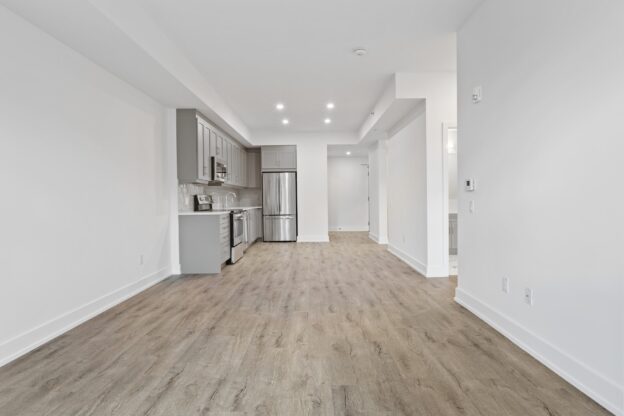When it comes to selling your home, the decisions you make about its interior can significantly influence its resale value. One of the often-overlooked yet crucial aspects is the type of flooring you choose. Whether you’re a homeowner looking to maximize your property’s worth or a prospective buyer seeking to make an informed decision, understanding the impact of flooring is essential.
Types of Flooring Materials
Hardwood Flooring
Hardwood flooring is a popular choice for many homeowners. Its durability and timeless appeal make it a sought-after option. While it may have a higher upfront cost, the longevity and classic design of hardwood flooring can provide a strong return on investment (ROI).
Carpeting
Carpeting offers comfort and warmth, making it a cozy choice for bedrooms and living areas. However, its lifespan and maintenance requirements should be considered, as worn-out carpets can deter potential buyers and lower the resale value.
Tile Flooring
Tile flooring is known for its versatility and resistance to moisture, making it ideal for kitchens and bathrooms. While it may have a higher installation cost, its durability and aesthetic appeal can attract buyers.
Laminate Flooring
Laminate flooring is an affordable option that’s easy to maintain. However, its limitations in terms of aesthetics may affect its appeal to potential buyers.
Flooring and Home Value
Flooring isn’t just about looks; it also affects the overall value of your home. Regional preferences, flooring trends, and insights from real estate agents all indicate that the right flooring choice can translate into a higher asking price. This means that investing in quality flooring can yield a favorable ROI when you sell your property.
Upgrading Flooring to Boost Resale Value
If your current flooring isn’t up to par, there are cost-effective ways to boost your home’s resale value. Consider refinishing hardwood floors, replacing worn-out carpets, or investing in grout and tile maintenance. Full flooring replacements should be chosen wisely based on your market, budget, and whether you plan to hire professionals or take a DIY approach.
Timing the Flooring Upgrade Strategically
Timing is everything. It’s essential to plan your flooring upgrades strategically, ensuring that they align with your overall selling timeline. Upgrading too early may result in unnecessary wear, while upgrading too late might not leave you enough time to enjoy the benefits of improved flooring before selling.
Flooring Maintenance and Resale Value
Regular maintenance and addressing flooring issues before listing your home can be a game-changer. Simple tasks like cleaning and upkeep, as well as providing warranties and maintenance records, can instill confidence in potential buyers and positively impact your home’s resale value.
Flooring Trends for the Future
As we look ahead, sustainability, luxury vinyl plank (LVP), and smart flooring technologies are emerging trends that could further influence the resale value of homes. Staying informed about these trends can help you make forward-thinking flooring choices.
Conclusion
The type of flooring you choose can significantly impact your home’s resale value. Whether it’s the durability of hardwood, the comfort of carpeting, the versatility of tile, or the affordability of laminate, flooring decisions should be made wisely. By understanding the role of flooring in first impressions, home value, and future trends, homeowners and buyers alike can make informed choices that benefit them in the long run.
